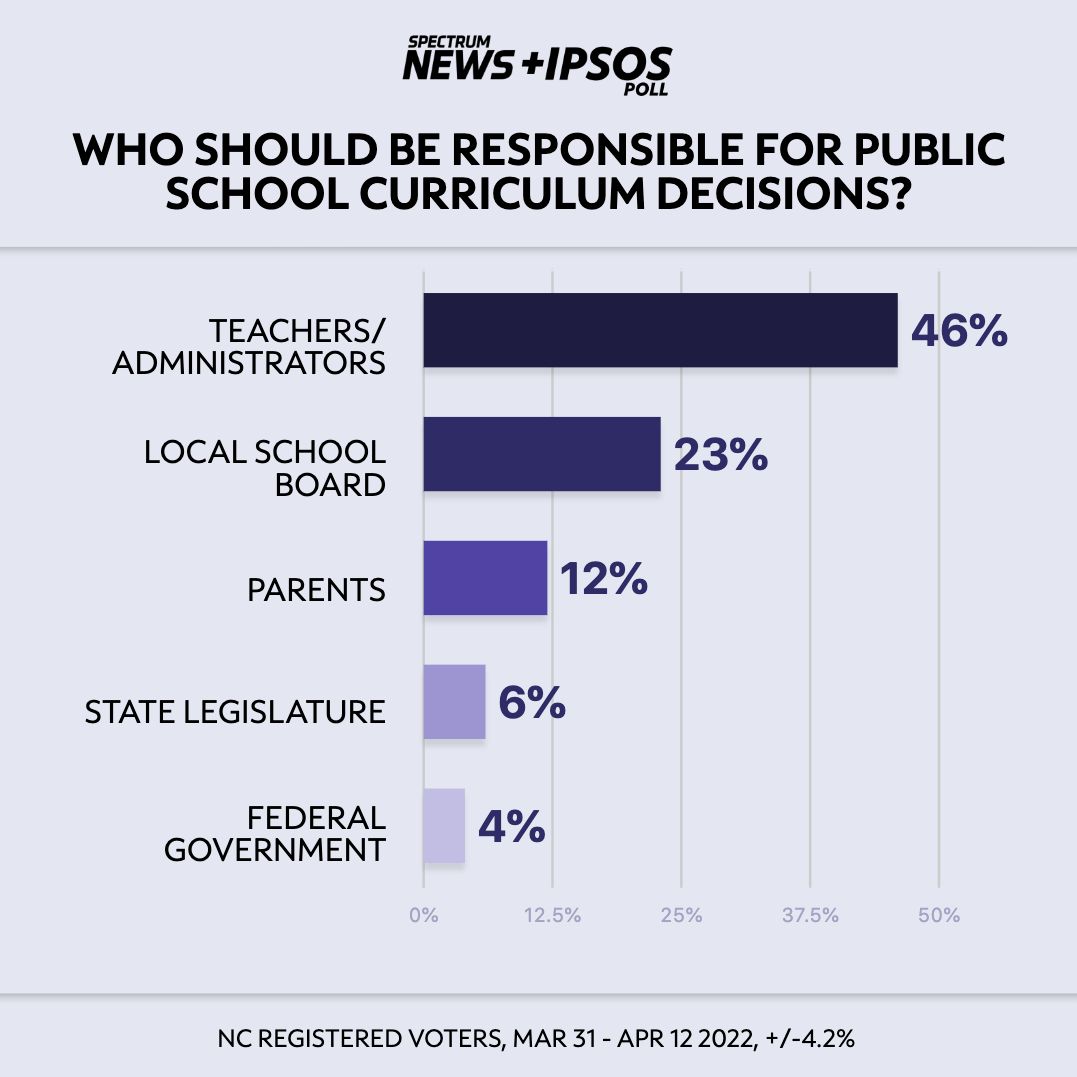RALEIGH, N.C. — From mask-wearing to banning books to teaching critical race theory, conversations about what should be taught and enforced in North Carolina public schools are ongoing.
A North Carolina couple weighed in on poll results regarding education in the state, with an importance on social-emotional learning. The couple is also husband and wife and both are teachers themselves.
What You Need To Know
- In our exclusive Spectrum News/ IPSOS poll, we asked North Carolinians how much they support or oppose banning the teaching of history and the impact of slavery and racism in public schools
- Seventy-nine percent of those polled opposed banning the teaching and 12% supported it
- A teacher husband and wife team weighed in, saying it takes a village when it comes to how decisions should be made in North Carolina public schools
- The couple put emphasis in the importance of social-emotional learning
Quality time is a love language Alec and Calita Virgil have perfected. The teacher team operates on a similar schedule and spends their free time after work catching up on each other's lives.
"If you're not a teacher, I think sometimes it's really hard for you to relate to our problems," Calita Virgil said.
It's that firsthand knowledge the two feel is crucial when it comes to decision-making in classrooms, and they're not alone.
"We're understanding of the things that are going on in the school," Alec Virgil said.
In our exclusive Spectrum News/IPSOS poll, we asked which of the following people or groups should be most responsible for making decisions when it comes to curriculum.

Forty-six percent of people say teachers and administrators should be responsible for making the decisions.
Story: Spectrum News Poll: North Carolina voters on education, masks in schools and student loans
"They know their local communities," said Alec Virgil. "One side of the county may have higher needs than another side of the county, then the administrators and teachers need to adjust in the spirit of equity."
Alec Virgil is a middle school social studies teacher who feels supported by the community and school board, especially when it comes to teaching history from different critical lenses.
"Race, equity, diversity and inclusion. That is certainly a topic of conversation now in the 21st century as teachers," he said. "I would assume I could go in more depth with it and maybe give them examples of real life things that impact and influence our societies."
Calita isn't discussing those topics with her kindergarten through second graders. Although she has made adjustments to her teaching style to emphasize mental health.
"Unfortunately, we have seen children as young as kindergarteners talk about taking their lives and not wanting to be here," Calita Virgil said.
Calita Virgil is incorporating more social-emotional learning than ever before and believes making decisions about what support is needed is an essential part of her job.
"We are the first responders in my opinion. I get to spend my days with students, with children, I feel like I know what they need," she said.
The husband and wife follow their curriculum, but say it's how they deliver the content as teachers that makes all the difference. And that autonomy to determine what students need is what distinguishes the role of a teacher.
"I think there's a level of this is what should be taught, but teachers should always handle how it's taught," Calita Virgil said.
"We are the determining factors of their success," said Alec Virgil.



